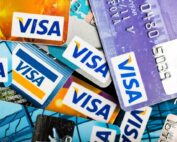Credit Card in the Netherlands: The Basics
FAQ about Dutch Credit Cards
This article is published 17 juli 2023. Last Updated on 6 februari 2024.
Dutch Credit Card Basics: What do I need to know?
A credit card in the Netherlands enables you to obtain funds from a bank for making purchases, with a grace period of 25-30 days to repay the borrowed amount. If you require more time, you will be subject to interest charges, which is a percentage of the outstanding balance. Additionally, certain credit cards offer valuable rewards and benefits when used responsibly.
Are Credit Cards Good or Bad in the Netherlands?
Credit Score in the Netherlands
The big difference in the Netherlands is that Credit Cards don’t influence a Credit Score, because we don’t have the same process as for example: Japan, China, the U.K., Canada, Australia, Germany, and the United States. In the Netherlands, we have a better alternative for this: BKR. The BKR in the Netherlands is a credit registration agency that keeps track of individuals’ credit histories and outstanding debts.
The ease of use of a Credit Card in the Netherlands
Having a credit card ensures you always have a payment option readily available, eliminating the need to find an ATM. Most people in the Netherlands would use a Credit Card for bigger purchases, especially around travelling.
Also in the Netherlands, cash money is disappearing quickly which means you will need a debit and credit card to fully integrate in the financial system.
Fraud protection
Fraud protection from a credit card refers to the measures and services provided by credit card issuers to safeguard cardholders against unauthorised or fraudulent transactions. Credit card companies implement various security features and policies to detect and prevent fraudulent activities, ensuring that cardholders are not held liable for fraudulent charges.
How Credit Card Companies Make Money?
Credit card companies generate revenue through several key mechanisms. First, they charge interest on outstanding balances when cardholders don’t pay their full statement amount on time.
- This interest, known as the Annual Percentage Rate (APR), constitutes a significant portion of their earnings.
- Second, credit card companies impose various fees on cardholders, including annual fees, late payment fees, balance transfer fees, and cash advance fees. These fees contribute to their profitability.
- Third, credit card companies earn from transaction fees paid by merchants when consumers use credit cards for purchases. The processing fees, known as interchange fees, are shared between the credit card networks and the issuing banks.
- Lastly, offering rewards and incentive programs to cardholders attracts customers, but the cost of these perks is typically covered by the fees charged to merchants. By leveraging these revenue streams, credit card companies sustain their operations and provide benefits to both consumers and businesses.
When should I not use a credit card in the Netherlands?
Instances to avoid using a credit card:
- Extra Fees: Merchants may pass processing costs to you through upfront surcharges or “convenience fees.” Unless your credit card rewards outweigh the surcharge, consider using an alternative payment method.
- Supporting Small Merchants: To support smaller merchants, paying with cash, check, or debit card can be preferable, as it saves them from credit card processing fees.
- Overspending: If you struggle to control spending with credit cards, opt for cash or debit to stay within budget and avoid accumulating high credit card balances.
While credit cards offer great benefits, it’s essential to research and choose the best card for your needs while exercising responsible spending, regardless of your chosen payment method.
Is Visa & Mastercard accepted in the Netherlands?
The Dutch Payments Association has successfully completed the Debit Card Acceptance (DCA) project, enabling Dutch cardholders and foreign visitors to use Visa Debit and Debit Mastercard payment cards for transactions. Prior to the project, almost half of the shops in the Netherlands did not accept these cards. The collaborative effort between the Dutch Payments Association, retailers, terminal suppliers, transaction processors, banks, Visa, and Mastercard aimed to update or replace the majority of payment terminals in the country to accommodate these “new” debit cards by the end of 2022.
The official announcement mentioned that most Dutch shops now accept Visa Debit and Debit Mastercard payment cards, making it convenient for tourists and Dutch nationals who will receive these cards in the coming years. According to data provided by the Dutch Payments Association, over the course of a year, 425,000 payment terminals were successfully updated, enabling Dutch retailers to accept digital payments using the 2.8 billion Visa Debit cards issued worldwide.
Beyond the basics; what do I need to know?
We have developed a variety of resources to assist you in making the optimal decision for your needs. Please review the following pages for more information on which credit card is most appropriate for you:
Top 5 Credit Cards in the Netherlands
Compare Credit Cards in Netherlands
Top 5 Dutch Bank Accounts in the Netherlands
Frequently asked questions about Credit Cards in Netherlands (FAQ)
Top 5 Dutch Credit Cards
| Credit Card | Price | ||
|---|---|---|---|
 | MasterCard - Gold Card | € 3,50 / Per Month | |
 | Visa - World Card | € 2,50 / Per Month | |
 | Mastercard- Classic Card | € 2,50 / Per Month | |
 | Visa World Card - Gold | € 3,30 / Per Month | |
 | American Express - Green Card | € 6,50 / Per Month |






